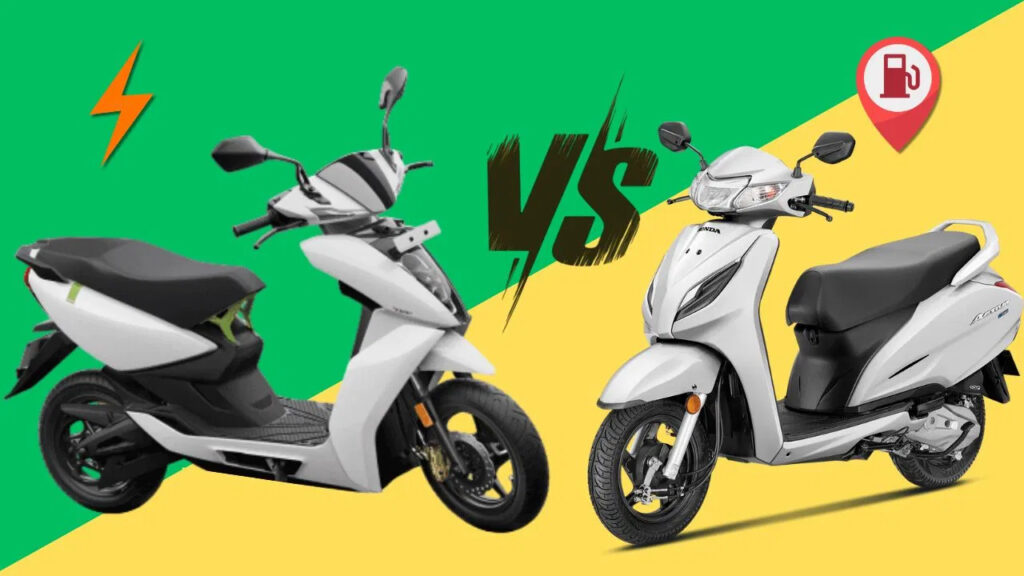Electric vs Petrol Scooters : Pick from a number of scooters, and you might find yourself really having a hard time making a decision. As a matter of fact, that of electric versus petrol scooters has proved to be one of the most hotly debated discussions stretched across the whole breadth of 2025, as the greater portion of the public looks for transportation that is cost efficient, eco-friendly, and, mostly, very effective.
Historically, petrol scooters were their first choice, but the trend has begun its slow but sure airage into electric scooters, which have proven themselves with less environmental impact, and advanced high-tech features. Which would be considered better for an individual in 2025? Pros and cons of electric and petrol scooters are discussed below.
Electric: Future commuting
Electric scooters have advanced a lot with respect to battery technologies and charging infrastructures. Greatest advantage of the electric scooter is that it is 100 percent eco-friendly; zero-emission implies it can be used without scratching the surface of the environment, thus perfect for carbon footprint minimizers.
Running an electric scooter is extremely cost-effective. Compared to petrol, charging electricity is really cheap, making them extremely economical for daily use.
Also Read : Volkswagen Offers Massive Discounts Up To Rs 2.70 Lakh On Virtus & Taigun In June 2025
Performance is smooth, noiseless riding with an incredibly simple maintenance requirement compared to petrol scooters. Since electric engines are simple, they have fewer parts that could wear out. Most of these electric scooters have quite sophisticated features like mobile application connectivity, regenerative braking, and use real-time data on battery usage.
But the main disadvantage is that there is range anxiety because electric scooters cover an average distance of about 70-100 km flat on a single charge, which is often inadequate for commuters traveling long distances twice a year, especially with the absence of quick charging stations.
Petrol Scooters-Reliable and Practical
Quite expectedly and predictably, petrol scooters maintain their position in first place as a mode of transportation, especially in terms of long distances and people who prefer diesel engines. On average, a normal petrol scooter will travel 200-300 km on full fuel which is impressive for long distances.
Refueling can be done within a couple of minutes compared to electric scooters which will seem to consume hours for another refill cycle. Worse still, but certainly much preferred by people who like a more durable and speedy ride, petrol scooters have most powerful engines.
Also Read : Kia Carens Clavis EV Set to Launch in India in July 2025 with 450+ Km Range
On the flip side, these petrol scooters also bring certain drawbacks along with them. For example, emissions-a bane that contributes to the dilemma of air pollution as well as climate change.
Fuel prices keep rising. This implies that the running cost for a petrol scooter will go higher. In addition, maintaining a petrol scooter usually comes with extra costs such as oil changes, air filter replacement, and tuning of the engine, which are all above average.

